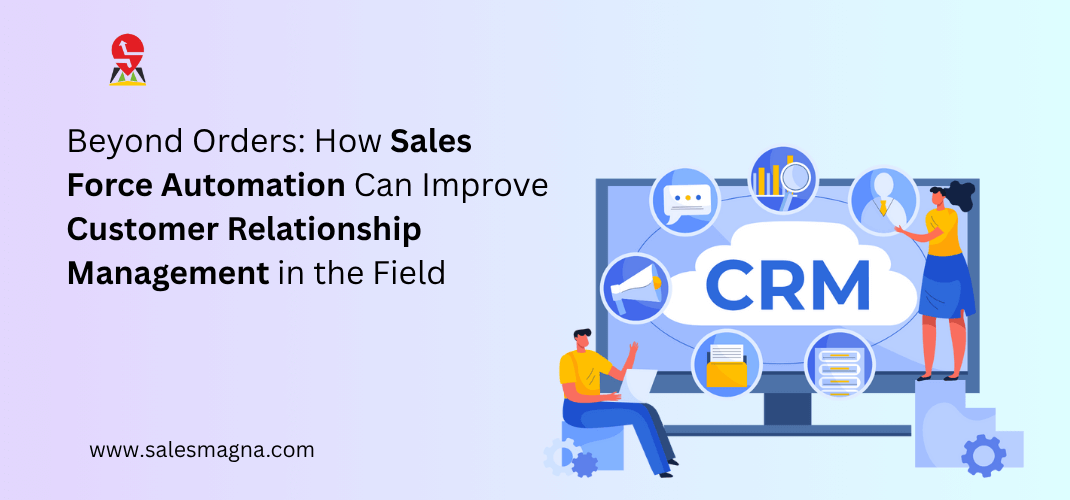Field sales is no longer just about booking orders. For modern businesses, especially in competitive sectors like FMCG, the real advantage lies in building stronger and more consistent relationships with retailers and distributors. With the right tools in place, sales reps can create trust, deliver better service, and contribute to long-term customer loyalty — all while increasing productivity and visibility for management.
Sales automation software plays a key role in making this shift happen by enabling better planning, data-driven interactions, and real-time communication. Here’s how a feature-rich field force automation solution bridges the gap between transactional selling and strategic relationship building.
Consistent Outlet Visits Build Trust
One of the foundations of strong customer relationships is consistency. With pre-planned daily routes and beat schedules, field reps can ensure that they visit each outlet regularly. This builds familiarity and trust, making the retailer more comfortable placing larger or more frequent orders over time. The ability to log each visit and record key details ensures every interaction is documented and visible to managers.
Smart Attendance and Day Start
Field executives begin their day with a digital check-in, allowing their managers to view real-time attendance and location. This day-start feature ensures that no time is wasted, and the field team is aligned and accountable from the first outlet of the day. When customers see punctual, professional visits, their confidence in the brand grows organically.
Real-Time Activity Tracking
Every action a field rep takes – from visit logs and order bookings to retailer verification and feedback collection can be tracked in real time. This transparency gives sales heads and regional managers a clear view of rep performance and helps identify gaps in follow-ups. Retailers benefit from faster service, better coordination, and accurate order processing.
Geo-Fencing Ensures Visits to Correct Locations
Geo-fencing tools ensure that field reps are visiting the outlets assigned to them. Each check-in is validated by location, which eliminates fake entries and guarantees authentic engagement. For retailers, this means fewer missed visits and a more reliable flow of communication and product information from the brand.
Outlet Verification Strengthens the Database
Building strong retailer relationships begins with having clean and accurate outlet data. With outlet verification features, reps can register new outlets, verify existing ones via OTP, and update incorrect data from the field. This not only reduces duplication but also improves targeting during new scheme rollouts or product launches.
Smarter Communication Through Notifications
Sales automation tools make internal communication faster and more focused. Managers can send reminders, task assignments, or performance updates via real-time push notifications. Field reps receive alerts about order targets, meeting updates, or route changes – all of which help them stay better prepared during customer visits.
Performance-Based Motivation
Tracking every visit, order, and sales target helps in building a performance-driven culture. Reps who consistently achieve their targets or provide exceptional service can be rewarded through sales contests or internal recognition. This gamified approach increases rep motivation and encourages them to engage customers more effectively.
Faster Feedback and Grievance Resolution
When issues arise – delayed orders, payment confusion, or stock mismatches – the field rep is often the first point of contact. Having an app that allows instant note-taking or complaint logging from the field ensures customer concerns are escalated and resolved quickly. Faster resolutions strengthen customer satisfaction and reduce the risk of churn.
Integrated Distributor Collaboration
When the field app is connected with the distributor’s workflow, reps can immediately view stock status, order history, or delivery timelines. This reduces miscommunication and improves the accuracy of commitments made to retailers. Strong coordination between the field team and backend partners reflects as better service at the retailer level.
Offline Functionality for Remote Locations
Field reps often visit semi-urban or rural areas where internet connectivity is weak or unstable. With offline support, they can still log visits, book orders, and update retailer information even without a live connection. Once the device reconnects, all data is synced automatically. Retailers benefit from uninterrupted service regardless of location.
Conclusion
Customer relationship management in field sales is no longer limited to smiling and writing down an order. The ability to offer consistent visits, reliable data, proactive communication, and real-time service has become the gold standard for building retailer loyalty. With the right field automation software, businesses can go beyond short-term transactions and start developing the kind of long-term relationships that grow sales sustainably.
